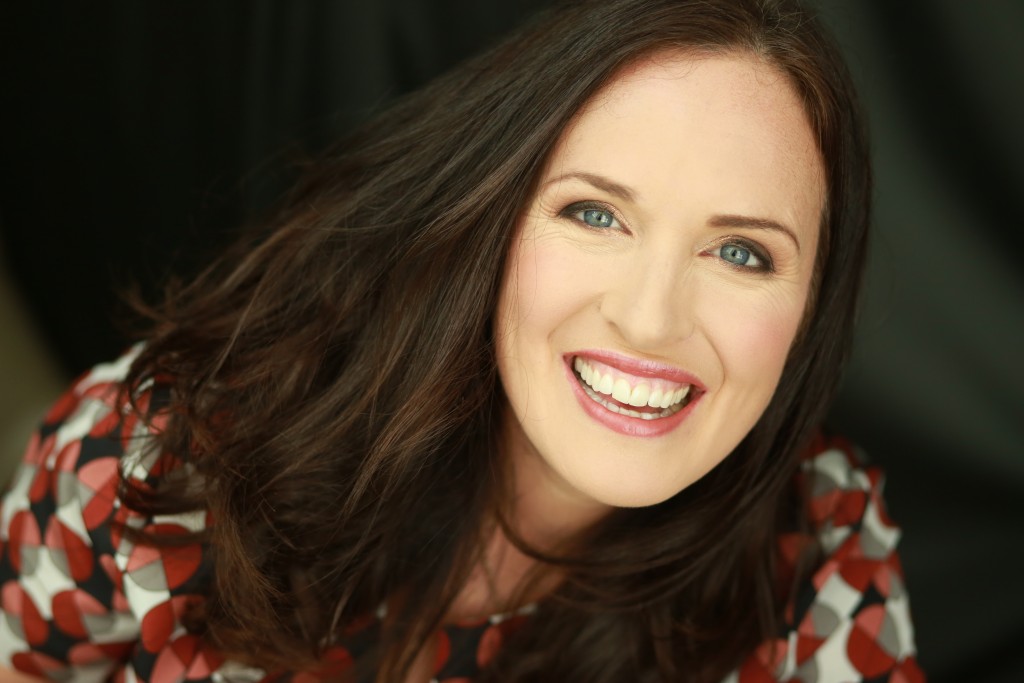Our Summer 2021 issue is out, and we are very excited about it! One of the highlights of this issue is an exclusive interview with the amazing Anita Moorjani, who spoke about the value of empathy and sensitivity, in a world that has grown harsh. Read a sneak peek below!
assertiveness
In a world where it can sometimes be difficult to stand in our power and be assertive, Dawn Cartwright offers her advice on how we can clearly communicate ‘our true ‘yes’ and our honest ‘no”. This article appears in our Autumn 2018 issue – to pick up a copy, just check your nearest stockist or subscribe to the magazine today.

The Art of Assertiveness
When to say yes and how to say no
by Dawn Cartwright
According to researchers at Cornell University, we make 35,000 conscious decisions each day. That’s thirty-five thousand opportunities every single day to move closer to, or farther away from, our dreams. Our decisions create our future. The clearer we are about when to say ‘yes’ and how to say ‘no’, the more likely we are to be true to ourselves and create a life that reflects who we are.
In a world where there’s pressure to conform and fit in, decisions are often made based on expectations, rather than the truth we feel inside. We lose ourselves. We slide into accommodating others because it seems easier. We avoid the less familiar emotions, and the closeness and bonding that comes from facing and working through them, to maintain an illusion of peace. We feel our true ‘yes’ and our honest ‘no’ and we second guess them, or push them aside. Yet we long to be intimate. We long to be accepted. We long to be loved as we truly are.
How do we get in touch with our innermost feelings and thoughts? What does it mean to be someone who says ‘yes’ and ‘no’ honestly? How do we express ourselves truthfully, with kindness? How do we create a life filled with possibility, intimacy and freedom? How do we become who we are capable of being?
In 1943 Abraham Maslow introduced Positive Psychology, the scientific study of the positive and elevating aspects of human behaviour. Maslow believed that every human being has a strong desire to realise their full potential, to be who they are capable of being. He created a model called Maslow’s Hierarchy of Needs, providing a map to becoming who we truly are. This map is useful in our quest to know when to say yes and how to say no.
When To Say Yes
- The Basics: Do you have shelter? Clothing? Food? Clean water? Are you meeting your sexual needs? If not, the stress of these unmet needs will interfere with your inner compass. Meet these needs and you’ll create a strong foundation. You’ll begin to recognise when you’re saying ‘yes’ because you’re depleted, cold, tired, hungry, thirsty or sexually unfulfilled, and when you’re saying yes because yes is what you truly feel.
- Safety: Our vigilant brain is the part of the brain that registers a threat and prompts us to say ‘yes’ to keep us from harm. Human beings have a natural desire for a predictable, orderly world. Having a daily routine like a morning walk or an evening meditation is a great way to create stability. Meet these needs and your ‘yes’ will be grounded in safety.
- Belonging: Humans are tribal beings. The need for togetherness is probably one of the most important and least met needs in the world today. Create healthy friendships. Engage in group activities that are meaningful to you. Meet this need and your yes will no longer come from a fear of being abandoned. Instead, yes will boost your feeling of belonging.
- Self-Esteem: A healthy sense of self is essential to being and becoming who we’re meant to be. When our self-esteem is low, we say ‘yes’ to gain approval. When self-esteem is high, we align with our core values no matter what. Know your core values, make a list.
- The Peak: Be truly you. That’s when your yes to others matches the yes you feel inside.
How To Say No
- The Basics: Fill your own cup. If you’ve had enough sleep, food, water and sex, chances are you’ll be more in touch with your natural generosity. You’ll be alert, relaxed, open and present, this in itself is a gift. Turn toward the person you’re saying no to, put both feet on the ground, relax your body, feel your generosity and say ‘no’.
- Safety: Pace yourself. Create a pace in all your relationships that makes it possible for you to maintain connection with yourself and with the other. Create emotional stability and safety for yourself and this will translate as emotional stability and safety for the other when you say ‘no’.
- Belonging: Be tribal. When we’re afraid to say no, we disappear and abandon the other person emotionally. Stay connected to your own heart. Stay emotionally connected to the other. Build a bridge of togetherness when you say ‘no’.
- Self-Esteem: Share your values. Believe in yourself. Believe in the other person. You are resilient! They are resilient! Self-acceptance makes you trustable and compassionate. Open your heart, be respectful, say ‘no’.
- The Peak: You are incredibly you. When you have fulfilled all your needs and you are consistently being and becoming who you are meant to be, your no is as positive as your yes.
Dawn Cartwright is a Tantric visionary, sacred writer, world traveler, and innovator in bio-energetic Tantra fusion. You’re invited to join her in 2019 for The Red Tent: Women’s Sacred Sexuality, April 12th – 14th, Be Fully Alive: Level 1 Tantra Immersion, April 26th – 28th, in the Wicklow Mountains and Weaving the Beloveds: Couples Tantra Retreat, May 3rd – 6th, in Lower Rosses, Sligo.
We wanted to share this powerful article by Amanda Collins from our Winter 2017/18 issue, in which she urges us to stop looking to unknown future events for our happiness, and to live for today instead. She says, “You can choose and claim happiness by living, breathing, and doing everything, every day, from a place of self-love.” The time for us to step into our power and choose our birthright of happiness is NOW.

You are love, pure and simple. Happiness is your birthright. All you have to do is choose it and claim it. “How?” you may wonder. You can choose and claim happiness by living, breathing, and doing everything, every day, from a place of self-love. If that sounds impossible to you, it’s time to begin listening to your self-talk, to look for signs and symptoms of denying the love and self-love that resides at the core of your being.
Do you say things to yourself such as “I’ll be happy when…” and then add an event in the future? When I lose more weight, when I find a boyfriend, when I make more money, when I quit my job: all of these thoughts deny you the happiness you might be feeling in the here and now. You are postponing your happiness when you could be inhaling joy and self-love with every breath instead.
Do you say other things to yourself such as “I wish I were as successful in my love life as I am at my job,” or “If only I were as good a parent as I am a friend”? Such thoughts again deny your ability to bring happiness into every area of your life. Instead of wishing, reframe your thoughts with the belief that you can bring the same ease, flow, and energy to your “weak” areas as to your “strong” ones.
Do you say things to yourself such as “Oh, it’s just my usual bad luck!” or “This kind of thing always happens to me”? Such statements deny your freedom of choice. They make you subject to some past negative idea of fate or destiny controlling your life. Be aware of the ways you criticise yourself or expect the worst. These are strong signs that you do not love yourself unconditionally. At some level you may feel (or have been told) that you do not deserve happiness. If so, you can begin the process of rooting out such self-denying attitudes.
Once you have developed the capacity to hear the negative messages in your self-talk, begin affirming the positive in yourself. Meditate to quiet the chatter so you can hear the deeper voice that knows you are love and that feeling self-love is the first step on the path to feeling deserving of happiness. Then you may choose to be happy. NOW.
Affirmations are a key method of reprogramming your mind— which has the quality of neuroplasticity—by replacing negative thoughts, doubts, fears and expectations with positive ones. State positively, as if it has already happened, your intentions and gratitude for whatever will bring greater positive energy and happiness into your life. Repeat each with full conviction five times in the morning and five in the evening. Here are a few examples to help you create your own:
- I give thanks for my lovely children who bring joy and pleasure to my life.
- I deserve to be respected, valued, loved and honoured.
- I am a magnet of success, grateful that limitless opportunities open for me now.
- I give thanks for my busy career and the clarity to use my time wisely.
- Radiant, vibrant good health is mine in every cell and atom of my being.
- I love myself unconditionally and shine that love into the world.
Examine your morning ritual. When you wake up in the morning, do you immediately reach for your phone or computer? Do you look for distraction or affirmation in the outside world? Change that habit. Tap in first. Tap into your heart and higher self. Ask yourself what you are grateful for. Breathe in and fill yourself with gratitude and the possibilities of abundance that each new day brings. From that place of strength, listen to the gremlins of negative self talk and banish them. Go for a run in nature. Stand in the sun or let the rain bathe you so you can connect yourself with the earth.
Find practices that are really nurturing and nourishing to you: whether it’s reading inspiring books, joining webinars and classes, or perhaps getting the therapy you may need for greater support and healing. If you notice you are depressed or low on energy a lot of the time, that’s a good sign you may need some expert help to heal and grow. I believe that getting expert help is a way of loving ourselves. Know that you deserve that time and that support. Give yourself permission to do what is self-loving by practicing self care each and every day.
Listening to yourself, affirming your strengths, examining your habits, practicing self care: these observances will help you cultivate self-love. Stop looking for happiness outside of yourself. Happiness is an inside job. Self-love is an inside job. Choose happiness, claim it as your birthright. Now!
For more information on Amanda’s work, go to www.AmandaCollins.com or www.InternationalFengShuiSchool.com



